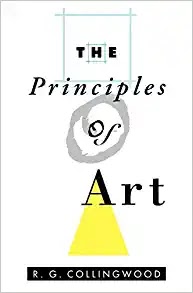 John Kaag's American Philosophy: A Love Story (2016) is one of those books that successfully weaves a personal narrative with deep learning. I enjoyed it very much.
John Kaag's American Philosophy: A Love Story (2016) is one of those books that successfully weaves a personal narrative with deep learning. I enjoyed it very much.The set-up is rather simple. A young philosopher with an interest in American philosophy is going through a rough time. Rather by chance, he learns for the existence of the personal library of one of the preeminent American philosophers of the first half of the 20th century, William Ernest Hocking (1973-1966). Hocking was a doctoral student at Harvard during the time of some of the towering figures in American philosophy: William James, Josiah Royce, and Georges Santayana (with Charles Sanders Pierce hovering in the wings, as it were). Hocking later joined the Harvard philosophy department and guided it into the mid-20th century. Hocking did well enough in his chosen field to be able to afford to buy a farm in New Hampshire, where he built a library for himself. And Kraag "discovers" the library with the help of a local, and he begins to explore it with the permission of the family (Hocking's three granddaughters).
The personal life of the narrator (John Kaag) isn't going well as the narrative opens. His marriage isn't working and nothing seems quite in sync. However, the discovery of the library and the treasury of books within it give him a project upon which to focus. And as befitting a philosopher, every book allows a story of its own to be told, sometimes about the contents of the book itself (Descartes, for instance), sometimes about the times and conditions under which it was written, and sometimes about figures associated with the library's builder, Hocking. And as I mentioned, we have Hockings older peers (James, Pierce, Royce), his later colleagues (Whitehead, for instance, whom Hocking enticed to Harvard), and other famous figures, contemporary and past, such as Robert Frost, Pearl Buck, Emerson, Thoreau, and Whitman. Also, women in Hocking's life, such as his wife Agnes, and more public figures such as Lydia Child and Jane Addams (of Hull House fame), add a significant theme to the story (primarily the under-valuation of these women in American culture). Kraag brings each figure into the account as he finds an inscription or letter or autograph in the collection of books and papers. And as he contemplates his discoveries, he works to come to terms with his own situation. Indeed, after the break-up of his marriage, another woman enters his life he begins to share in his adventure, both professionally and on a personal level.
Kaag tells his own story with honesty and compassion, and he's an expert in American philosophy who capably relates an aspect of American life--American philosophy--that is often ignored and certainly under-appreciated today. (Has any American philosopher been a consequential figure in American culture since John Dewey? Has any American philosopher since Dewey held the prominence of William James or Ralph Waldo Emerson? I think not.)
Kaag tells the story of American philosophy in a way that prompts me to want to know it much better. I've certainly delved into William James, and some Dewey and Pierce, but with this book, I realize the Royce and Hocking hold promise as well. (Santayana was already on my radar.) For anyone interested in American philosophy and culture, this book will prove both fruitful and enjoyable.










